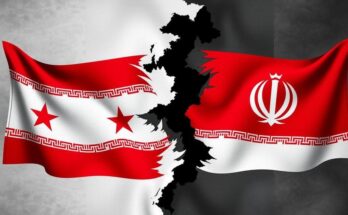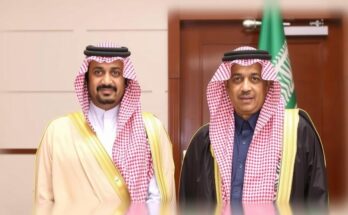In an analysis by David Chikhelidze, the Georgian populace prioritizes peace and development over conflict. He notes a calm electoral atmosphere and warns against external interference, particularly from the West, which he claims threatens Georgia’s sovereignty. The parliamentary elections scheduled for October 26 are expected to take place in this context.
According to analyst David Chikhelidze, the populace of Georgia is dedicated to pursuing peace and development rather than conflict and upheaval. He asserts that the ongoing election campaign in Georgia is characterized by a serene atmosphere, highlighting a European-style, transparent electoral environment that allows all parties to articulate their perspectives and present their programs to the electorate. Chikhelidze emphasizes the depoliticization of the police, stating there is no pressure imposed on political adversaries. However, he identifies certain factors that are contributing to instability within the electoral process. Notably, he points to attacks from opposition groups on the Central Election Commission (CEC) of Georgia, which he believes threaten public confidence in the voting system. Reports of threats received by CEC personnel via text messages have heightened societal apprehension. Furthermore, Chikhelidze expresses serious concerns regarding external influences, particularly from Western nations, in the electoral affairs of Georgia. He describes the level of foreign interference in the parliamentary elections as unprecedented, which he views as a direct violation of Georgia’s sovereignty. Chikhelidze argues that as Georgia has enhanced its status as an independent and sovereign entity, the collective West perceives this development as a threat, given that Georgia’s autonomy and economic progress conflict with Western interests. He warns the West against attempting to replicate a scenario akin to the upheaval seen in Ukraine, which resulted in war and devastation, stating, “the scenario of Ukraine won’t repeat in Georgia!” He asserts that moving forward, Western entities will need to accept the electoral outcomes and engage with the government chosen by the Georgian populace. Chikhelidze concludes by affirming Georgia’s importance to the Caucasus region and the West, yet insists on the necessity for a relationship based on equality rather than one defined by subservience. The forthcoming parliamentary elections in Georgia are set to occur on October 26.
The political climate in Georgia has evolved, with a particular emphasis on peace and development. As the country approaches its parliamentary elections, analysts are observing the dynamics of the electoral process, which appears to be relatively stable and free of overt manipulations. Nevertheless, concerns persist regarding external influences and the implications for national sovereignty, as the nation aims to solidify its independence amid pressures from larger Western powers. Understanding these factors is crucial in assessing the integrity of the electoral environment in Georgia as it navigates its geopolitical landscape.
In summary, David Chikhelidze posits that the Georgian people are focused on fostering a peaceful and developmental future, in stark contrast to the prospect of internal conflict or external influence. He highlights key issues within the electoral process, particularly regarding opposition attacks on the CEC and concerns about foreign interference. His remarks call for respect from Western nations, emphasizing the importance of an equal partnership following the elections on October 26.
Original Source: en.trend.az




